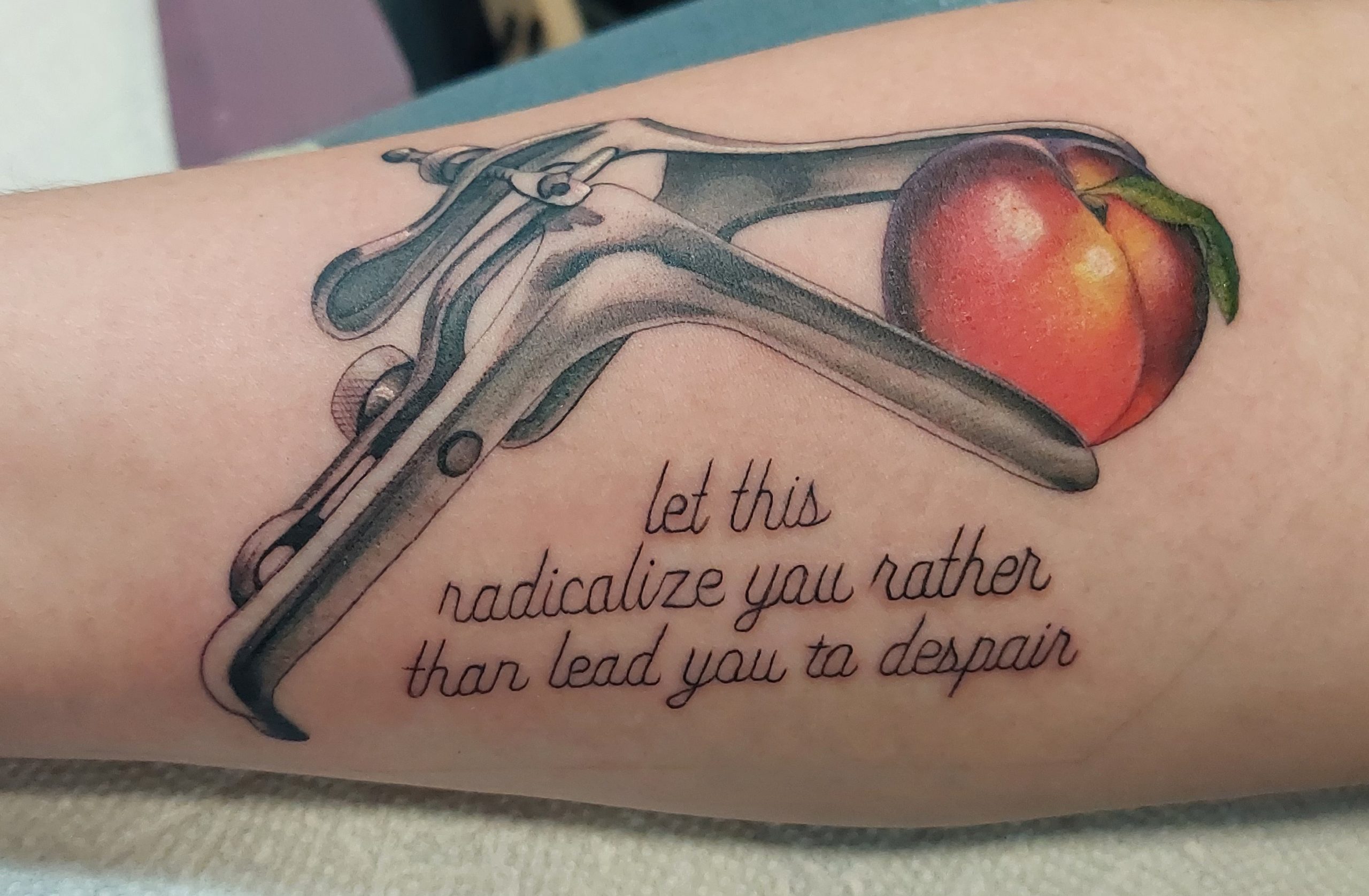The last decade of my life has been devoted to pelvic health and the speculum exam in one way or another: first as a community sex educator, then a genitourinary teaching associate, a medical consultant, and finally a forensic nurse. These are not competing identities or stairsteps I used to get to my end goal, but part of a lifelong scaffolding of knowledge that allows me to teach and practice in ways I never could have imagined before.
The text of my tattoo is a quote by Mariame Kaba: “Let this radicalize you, rather than lead you to despair.” It is a guiding maxim for all that is hard in this world, and pelvic health is hard.
The speculum exam is historically a site of violence and trauma. It has been wielded over the bodies of people with vaginas for centuries as a locus of control. Primarily white, straight, cis men presume they are entitled to access the most private parts of the body, often without the consent or collaboration of their patients. That history is stored in the bodies of people who receive pelvic exams today—with anxiety, pain, spasm, fear – and in the praxis of new medical providers who unconsciously inherit their predecessors’ lens for viewing and touching the body.
This is exhausting. It is sad. There is so much to be fixed. It would be easy to despair.
Kaba exalts us not to fall into this trap, but to let today’s difficulties force us to imagine a brighter, more just and equitable future. When we radicalize, we build new possibilities for ourselves and others.
The speculum is radical to me and my practice. It can hold a nectarine without bruising. It can support a sexual assault survivor without pain. It can teach hundreds of medical students without violence. It can give community members knowledge and confidence in their own bodies without trauma.
Every day I wake up and choose a future that is radical, but gentle. It can be your future too.
Build A New Future With Us
If you’re interested in learning about pelvic exams or using a speculum from a trauma-informed care, gender-inclusive lens, please consider filling out the form below. In the coming months, I’ll be creating opportunities for patients, providers, and community members alike to access this knowledge and build a better world for pelvic health together.




